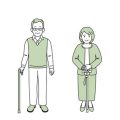Introduction to Parkinson’s Disease in England
Parkinson’s disease is a progressive neurological condition that affects thousands of people across England, touching individuals and families with its far-reaching impact. Characterised by symptoms such as tremors, rigidity, slowness of movement, and balance difficulties, Parkinson’s can make everyday activities increasingly challenging. In England alone, it is estimated that around 145,000 people are living with the condition, with numbers expected to rise as the population ages. Beyond the physical symptoms, those affected often face emotional and social hurdles, including anxiety, depression, and isolation. The unique cultural landscape of England—spanning bustling cities to rural villages—can add layers of complexity when accessing consistent care and support. Public awareness has grown over recent years; however, many still struggle to find tailored resources and rehabilitation opportunities suited to their individual needs. Understanding the specific challenges faced by people with Parkinson’s in England forms the essential foundation for developing effective, multidisciplinary rehabilitation approaches that not only address physical health but also promote overall wellbeing and independence.
2. The Role of Multidisciplinary Teams
In England, the rehabilitation of individuals living with Parkinson’s disease is most effective when a multidisciplinary team (MDT) approach is embraced. This collaborative model brings together a diverse group of professionals, each contributing their unique expertise to deliver holistic and personalised care. By working closely together, these teams can address the complex and evolving needs of people with Parkinson’s, improving both clinical outcomes and quality of life.
Key Members of the Multidisciplinary Team
The MDT typically includes physiotherapists, occupational therapists, speech and language therapists, specialist nurses, and consultants such as neurologists or geriatricians. The table below outlines the main roles and contributions of each professional within the English healthcare context:
| Professional | Main Contributions |
|---|---|
| Physiotherapist | Supports mobility, balance, strength training, and fall prevention through tailored exercise programmes. |
| Occupational Therapist | Helps individuals maintain independence in daily activities by adapting tasks and environments; provides equipment recommendations. |
| Speech & Language Therapist | Assists with communication difficulties and swallowing disorders, offering strategies to improve safety and quality of life. |
| Parkinson’s Nurse Specialist | Provides ongoing support, medication management, education for patients and families, and acts as a key contact within the team. |
| Consultant (Neurologist/Geriatrician) | Leads on diagnosis and complex medical management; coordinates care plans alongside other professionals. |
The Benefits of Collaborative Care
This integrated approach ensures that interventions are not only evidence-based but also responsive to the changing needs of each individual. MDT meetings facilitate regular communication among team members, enabling timely adjustments to care plans. In addition, involving families in discussions helps to set realistic goals that align with personal values and preferences—a cornerstone of person-centred care in the UK.
Supporting People at Every Stage
The importance of multidisciplinary teamwork becomes even more pronounced as Parkinson’s progresses. For example, physiotherapists may work with occupational therapists to ensure safe home environments, while nurses monitor medication efficacy and side effects. Such seamless collaboration helps prevent complications, reduces hospital admissions, and fosters confidence in those living with Parkinson’s across England.

3. Tailoring Rehabilitation to Individual Needs
In England, rehabilitation for people living with Parkinson’s disease is increasingly moving towards person-centred approaches, recognising that no two individuals experience the condition in exactly the same way. This philosophy places each individual at the heart of their care, ensuring that their values, preferences, and daily routines are respected throughout the rehabilitation process.
Person-Centred Approaches
A person-centred approach involves listening to the unique experiences and aspirations of each individual. By doing so, multidisciplinary teams—consisting of physiotherapists, occupational therapists, speech and language therapists, nurses, and other professionals—can create supportive environments where people feel heard and empowered. In practice, this means taking time to understand what matters most to the person with Parkinson’s, whether it’s maintaining independence at home, enjoying a favourite hobby, or staying active within their local community.
Goal-Setting in Rehabilitation
Goal-setting is a cornerstone of effective rehabilitation in England’s health and social care settings. Working collaboratively with patients and their families, professionals help set realistic and meaningful goals tailored to each person’s abilities and wishes. These goals might include improving balance to reduce falls, enhancing hand function for daily tasks, or developing strategies for clearer communication. Regular reviews ensure these goals remain relevant as circumstances change over time.
Adapting Plans to Lifestyle and Circumstances
No two lifestyles are identical, so rehabilitation plans must be flexible enough to accommodate differences in living arrangements, cultural backgrounds, work commitments, and personal interests. For example, someone living alone in rural Yorkshire may require different support from someone residing with family in central London. Professionals are encouraged to adapt interventions—such as exercise routines or mobility aids—to fit seamlessly into each person’s day-to-day life. This adaptability not only enhances participation but also fosters a sense of ownership and motivation on the journey towards better outcomes.
The Importance of Ongoing Communication
Consistent communication between team members and those receiving care is essential. By regularly checking in and encouraging open dialogue about what is working—and what isn’t—rehabilitation can evolve alongside the person’s needs. This dynamic approach helps address challenges promptly while celebrating progress together.
A Gentle Reminder
Ultimately, tailoring rehabilitation means honouring each individual’s story. In England’s diverse communities, embracing flexibility and compassion allows people with Parkinson’s to live well in ways that are most meaningful to them.
4. Community and NHS Resources
Accessing the right support can make a meaningful difference for people living with Parkinson’s disease and their carers. In England, both the NHS and local communities offer a range of resources aimed at improving quality of life and enhancing rehabilitation outcomes. Understanding these services—and how to connect with them—can be empowering on this journey.
NHS Services for Parkinson’s Disease
The NHS provides a spectrum of care, from initial diagnosis to ongoing management. Specialist Parkinson’s nurses, neurologists, physiotherapists, occupational therapists, and speech and language therapists often work together as part of multidisciplinary teams. These teams are typically accessible through local hospitals or community health centres. GPs play an essential role in referrals and coordination of care.
| NHS Service | How It Helps | How to Access |
|---|---|---|
| Parkinson’s Nurse Specialists | Offer medication advice, symptom management, and emotional support | Referral via GP or neurologist |
| Physiotherapy | Improves mobility, balance, and flexibility | Community or hospital-based referral |
| Occupational Therapy | Supports daily living skills and home adaptations | NHS referral following assessment |
| Speech & Language Therapy | Addresses speech or swallowing difficulties | NHS referral required |
| Mental Health Support | Counselling for depression and anxiety related to Parkinson’s | Via GP or self-referral in some regions |
Community Support Groups and Programmes
Beyond clinical care, local community groups play a vital role in reducing isolation and fostering connection. Many areas in England host regular Parkinson’s cafes, exercise classes tailored for those with mobility challenges, singing groups (such as “Singing for the Brain”), and peer support meetings. These provide practical advice, friendship, and opportunities for gentle activity.
Key Charity Organisations Supporting People with Parkinson’s
| Organisation | Main Activities/Support Offered |
|---|---|
| Parkinson’s UK | Helpline, information resources, local group meetings, campaigning for better services, carer support networks |
| The Cure Parkinson’s Trust | Research funding, information on clinical trials, community engagement events |
| Penny Brohn UK (selected areas) | Holistic wellbeing programmes including nutrition advice and counselling for people with neurological conditions |
| Local Carers’ Centres (various) | Advice, respite services, peer support sessions specifically for carers |
Navigating Resources Effectively
If you are newly diagnosed or caring for someone with Parkinson’s in England, starting with your GP or specialist nurse is recommended—they can signpost you to both NHS therapies and local non-medical supports. Many charities also have online directories to help you find groups in your area. Remember: it’s okay to ask for help. Building your own network of professionals and peers can bring comfort, encouragement, and practical solutions as needs change over time.
5. Enhancing Quality of Life Through Rehabilitation
In England, rehabilitation for people living with Parkinson’s disease is not solely about physical improvement; it is a holistic journey that seeks to enhance quality of life in meaningful and practical ways. Multidisciplinary teams—often comprising physiotherapists, occupational therapists, speech and language therapists, nurses, and psychologists—work collaboratively to address the complex challenges faced by individuals throughout their Parkinson’s journey.
Supporting Mobility and Independence
One of the central aims of multidisciplinary rehabilitation is to help people maintain and even regain their mobility. Physiotherapists often design personalised exercise programmes that focus on balance, flexibility, and strength, which are crucial for reducing falls and maintaining walking ability. Occupational therapists play an essential role in helping individuals adapt their homes and daily routines, enabling greater independence when managing personal care or household tasks. These practical supports can empower people to continue engaging in activities they value, fostering a sense of autonomy.
Addressing Mental Health Needs
The emotional impact of Parkinson’s is profound, with many experiencing anxiety, depression, or feelings of isolation. Psychologists and specialist nurses within multidisciplinary teams provide counselling, coping strategies, and guidance for both individuals and their families. Support groups—facilitated by charities such as Parkinson’s UK—offer safe spaces to share experiences and find community understanding. This nurturing approach can help reduce stigma and promote emotional resilience.
Promoting Social Participation
Staying socially connected is vital for well-being. Rehabilitation professionals encourage involvement in local community activities or group classes tailored for those with Parkinson’s. Speech and language therapists support clearer communication, so individuals feel more confident participating in conversations and group settings. Local initiatives—like singing groups or adapted sports—help people stay active and socially engaged, reinforcing the idea that life with Parkinson’s can still be rich with purpose and connection.
A Collaborative Approach for Better Outcomes
The integration of these multidisciplinary interventions reflects the values at the heart of the NHS: compassionate care delivered close to home. By addressing mobility, independence, mental health, and social participation together, rehabilitation services across England strive not just for clinical progress but for a fuller, more connected life for everyone affected by Parkinson’s.
6. Barriers and Opportunities in English Parkinson’s Care
Despite the dedication of healthcare professionals and the success of multidisciplinary approaches, there remain significant barriers to optimal Parkinson’s disease rehabilitation in England. Access to specialist services can be inconsistent, particularly for those living in rural or underserved areas. While the NHS strives to provide equitable care, regional differences often mean that some individuals must travel considerable distances for appointments, which can be challenging for people with mobility issues.
Funding is another crucial concern. Although there is strong commitment to supporting people with Parkinson’s, resources are finite. This can result in waiting lists for physiotherapy, occupational therapy, or speech and language support, impacting the continuity and timeliness of care. Charitable organisations such as Parkinson’s UK play an important role in bridging these gaps, yet there remains a need for more sustainable public investment.
Regional Variations and Service Accessibility
The postcode lottery effect is a persistent issue. Some localities offer comprehensive community-based rehabilitation teams, while others have limited access to multidisciplinary expertise. This uneven distribution can lead to disparities in health outcomes and quality of life for people living with Parkinson’s across England.
Innovations Driving Change
Despite these challenges, recent innovations are paving the way for improved support. The adoption of telehealth and virtual consultations during the COVID-19 pandemic has demonstrated how technology can overcome geographical barriers and enhance regular monitoring. Many NHS trusts are now integrating digital platforms into their service models, making it easier for patients to access advice and therapy from home.
Future Opportunities
The future of Parkinson’s care in England holds promise through collaboration between the NHS, social care providers, researchers, and patient advocacy groups. Ongoing clinical trials into new therapies and assistive technologies continue to offer hope for better symptom management. There is also a growing focus on personalised care plans that reflect individual needs and preferences—an approach that aligns closely with the NHS Long Term Plan’s commitment to person-centred care.
Addressing these barriers requires a united effort: continued investment in services, greater integration across disciplines, and harnessing innovative solutions to ensure every person with Parkinson’s—wherever they live in England—has access to high-quality rehabilitation and support tailored to their unique journey.
7. Practical Tips for Families and Carers
Supporting a loved one with Parkinson’s disease in England can be both rewarding and challenging. As the condition progresses, families and carers play a crucial role in maintaining quality of life and fostering independence. Here are some gentle, practical tips designed to help you navigate the journey with compassion and confidence.
Understanding Parkinson’s Disease
Begin by learning about Parkinson’s disease—its symptoms, progression, and treatments. The more you understand, the better equipped you’ll be to offer sensitive support. Organisations such as Parkinson’s UK provide accessible resources, local information sessions, and helplines tailored to the needs of British families.
Building a Support Network
No one should feel alone on this journey. Connect with local support groups or carer networks; these can be found through NHS services or community centres across England. Sharing experiences with others facing similar challenges often brings comfort, new ideas, and much-needed emotional support.
Working with Multidisciplinary Teams
Engage actively with your loved one’s care team—this might include physiotherapists, occupational therapists, speech and language therapists, GPs, and specialist nurses. Don’t hesitate to ask questions or express concerns during appointments. In England, multidisciplinary approaches are central to rehabilitation; carers are encouraged to be part of goal-setting discussions and care planning.
Encouraging Independence
Promote independence where possible by breaking tasks into manageable steps and allowing extra time for daily activities. Use adaptive equipment recommended by occupational therapists—for example, grab rails or weighted cutlery—to make life easier at home. Your encouragement helps maintain dignity and confidence.
Looking After Yourself
Caring can be demanding physically and emotionally. Take regular breaks, seek respite care when needed, and stay connected with friends or hobbies outside your caring role. Many local authorities in England offer carer assessments to identify further support you may be entitled to.
Accessing Financial and Social Support
You may be eligible for benefits such as Carer’s Allowance or assistance from Adult Social Care services. Charities like Age UK and Citizens Advice can guide you through applications and connect you to grants or equipment that ease daily life.
Gentle Communication and Emotional Support
Pace conversations gently and allow your loved one time to express themselves. Be patient with changes in mood or communication skills—these are often symptoms of the condition itself. Celebrate small achievements together, cherish shared moments, and remember: kindness goes a long way.
The journey with Parkinson’s is unique for every family. By embracing available resources, seeking professional advice when needed, and fostering an atmosphere of empathy at home, families in England can help their loved ones achieve the best possible outcomes through every stage of rehabilitation.


